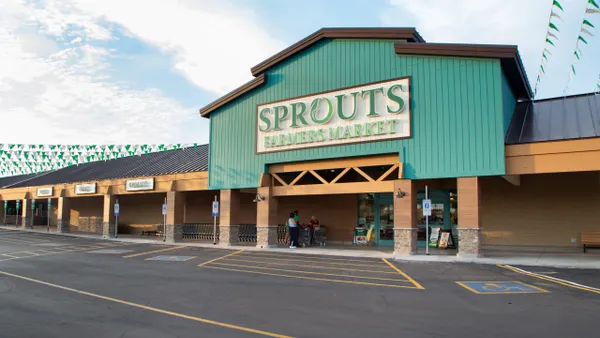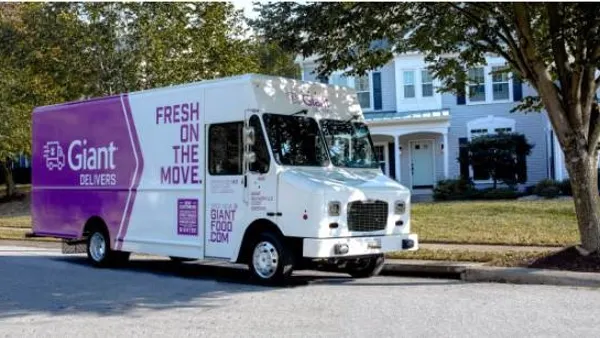Dive Brief:
- Singer John Legend announced a free shuttle service in his hometown of Springfield, Ohio, that takes residents in the city's underserved south side neighborhood to the nearest Kroger, according to the Springfield News-Sun. Springfield’s last grocery store on the south side, also a Kroger, closed last month, removing the closest retail food location for neighborhood residents.
- The service will launch Saturday, March 7 and will pick up residents in the parking lot of the closed Kroger. The shuttle will operate from 4:30 p.m. to 8 p.m on Wednesdays, and 1 p.m. to 4 p.m. on Saturdays and Sundays.
- Legend says he partnered with city officials, like Springfield’s mayor, as well as The Abilities Connection, a non-profit program that will run the shuttle service.
Dive Insight:
Although the shuttle service offers a grocery lifeline for affected shoppers, it only runs limited hours and may not be convenient for working residents or those who simply don't want to go to the trouble of making a lengthy round trip. In a video update this week, Legend said that he and city officials are doing everything they can to bring a grocery store back to the area.
In the ongoing battle against food deserts, shuttle services have become a preferred tool for local government, companies and nonprofits. Lyft offers $2.50 rides to consumers in 15 cities through its Grocery Access Program. In Hartford, Connecticut, insurance companies Aetna and The Hartford offer free shuttle service, while in Lousville, Kentucky, Kroger offers a Zero Hunger Mobile Truck that launched last year.
Legend’s alma mater, the University of Pennsylvania, used a similar program to help students get to the nearest grocer. At Yale, a summer pilot was so successful, the college made it a permanent, year-round offering. Organizations have rolled out a variety of other food desert solutions, from mobile markets to tiny grocery stores in shipping containers, with mixed success.
Advancements in technology promise to offer further solutions to a persistent problem that impacts an estimated 37 million Americans. Autonomous vehicles, for one, are showing promise as a shuttle and delivery solution. Walmart is running a pilot program in Arizona in which autonomous vehicles pick up shoppers and deliver them to their local store.
Grocery delivery services also offer a potential solution. The U.S. Department of Agriculture kicked off an online purchasing program in New York state last year that covers the cost of food but not delivery and service fees. Amazon and Walmart are among the retailers participating in the program, which expanded to Washington state in January.









